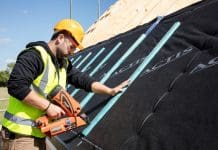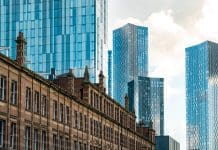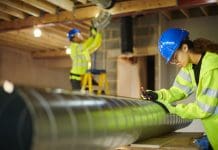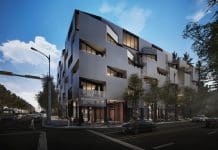A good office environment provides a sense of wellbeing and encourages efficiency, an important consideration when it is estimated that we spend more than 10 years of our lives in the workplace
Factors that contribute to the environment include comfortable temperature and acceptable noise levels. Well-designed secondary glazing systems offer a cost-effective method of almost eliminating draughts, retaining more heat and keeping unwanted external noise out. This will lead to a more comfortable workspace and a helpful reduction in energy bills.
Secondary glazing traps an insulating layer of air between the glass panes and if low emissivity glass is incorporated, heat loss can be reduced by up to 65%. These measures make a building more attractive for both sale or lease, by raising EPC and MEES levels, and assist with the wider commitment to carbon reduction.
Many office environments are located close to transport links and in busy town centres where outside noise levels are high, which can distract attention and make people less efficient at work. The recommended ambient noise level in a meeting room is 35-40dB and a cell office 40-50dB, whereas outside street noise levels can be 70-80dB.
Selectaglaze secondary glazing set 100-150mm from the primary window and fitted with standard glass can substantially reduce noise levels by 42-45dB and even higher levels if a heavier glass is chosen.
Many offices are still found within older buildings, often in city centres or around transport hubs. These were constructed with less thermally efficient materials and in times when noise was not quite such an issue. The windows, in particular, do not retain heat well, are often draughty and usually acoustically inefficient.
For buildings that have been listed by Historic England, often secondary glazing is the only way of improving the single glazed original primary windows. It is generally accepted by conservation officers and heritage bodies, but Listed Building Consent should always be gained prior to installation.
County Hall
 Sitting on the south bank of the river Thames overlooking the House of Parliament and Big Ben, etc. venues that had taken some of the fourth floor of County Hall decided to undertake a refurbishment of the space to make it more inviting for clients and guests using their space. The desire was to improve the thermal performance, thus improving EPC rating, as well as enhancing the acoustic insulation.
Sitting on the south bank of the river Thames overlooking the House of Parliament and Big Ben, etc. venues that had taken some of the fourth floor of County Hall decided to undertake a refurbishment of the space to make it more inviting for clients and guests using their space. The desire was to improve the thermal performance, thus improving EPC rating, as well as enhancing the acoustic insulation.
As the building is Grade II listed, secondary glazing had to be installed. Not only were sightlines matched, but the frames were also powder coated in a matt grey finish to complement the existing metal frames primary windows.
The iconic lighthouse building
Another challenging project for all involved was the transformation of the iconic lighthouse building in Kings Cross, which had been on the Historic England at-risk register for many years. Plans were developed to create an office environment on the upper floors and commercial units on the ground floor. Due to its location on one of the busiest junctions in London, acoustic insulation was paramount, as well as meeting the heritage guidance. White secondary glazed frames were installed to match the primary glazing, with a cavity to ensure the dB reduction was met.
Selectaglaze secondary glazing is fully fabricated in-house and delivered to site by Selectaglaze installation teams. Works can be planned for vacant rooms or low occupation areas during normal hours, while busy areas can be dealt with outside normal working hours. Many schemes will include wall insulation and the secondary glazing can fit within this to become an integral part of the overall design.
Contact Selectaglaze for more details; literature requests, free technical advisory or to book a RIBA approved CPD.
Zoe Williams
Head of Marketing
Tel: 01727 837271
Please note: this is a commercial profile.











![[VIDEO] Making DorTrak reports easy to read with Fireco Inspecting fire doors at Fireco, firedoor technology, 2023](https://www.pbctoday.co.uk/news/wp-content/uploads/2024/04/JPZ_2364-web-218x150.jpg)
![[VIDEO] Re-flow Field Management review by Traffic Management Installations When TMI began subcontracting for councils and government bodies, they wanted to present their site reporting in a more professional manner](https://www.pbctoday.co.uk/news/wp-content/uploads/2025/03/TMI-Media-1-218x150.png)

